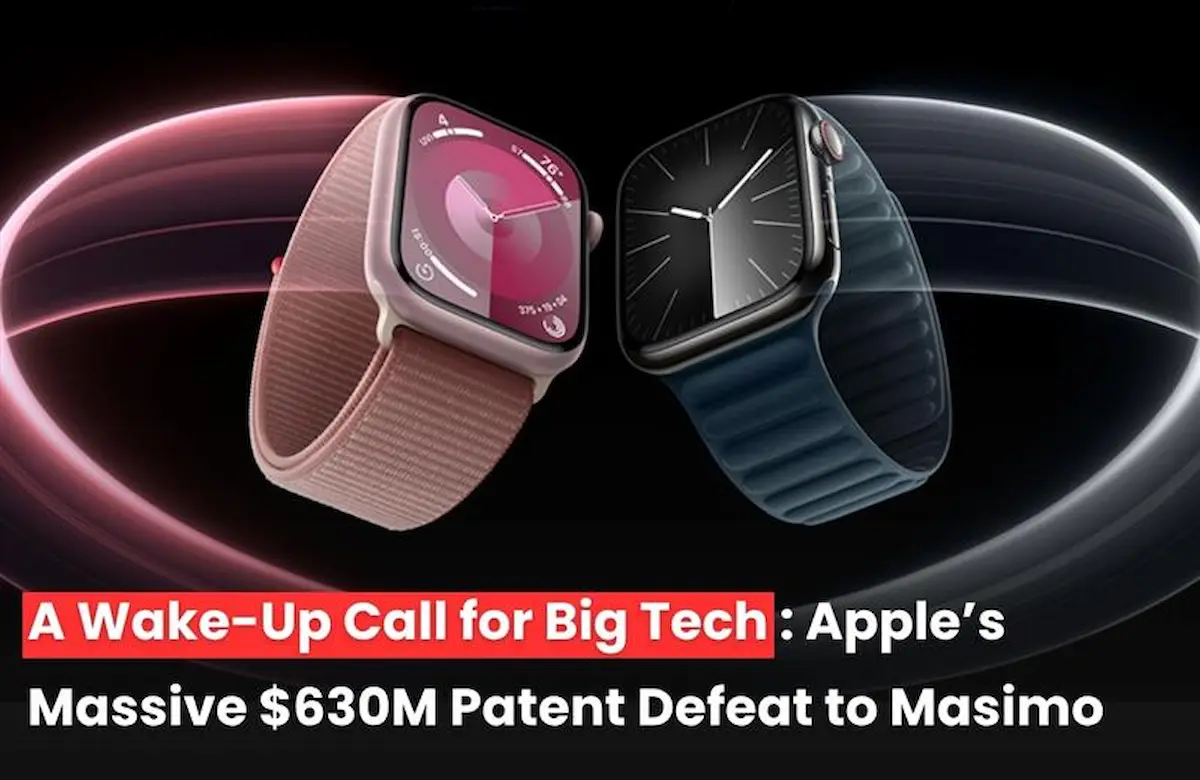
Recently, a major headline shook the tech world — and this time, Apple is right at the center of it. According to the latest reports, in the Apple vs Masimo Patent Infringement Case, Apple has been ordered to pay around $630 million to medical-tech company Masimo after a court found that the Apple Watch used Masimo’s patented technology without permission. It’s a surprising case that shows how smaller companies are becoming more confident about protecting their patents, even when it means taking on giants like Apple. Keep reading to find out what happened, why Apple lost the case.
What Is the Full Background Behind the Apple vs Masimo Patent Infringement Case?
To really understand this case, we need to look at how the whole Apple–Masimo drama even began. Their feud goes back years. Masimo, a medical-tech company known for its advanced pulse-oximetry sensors, started noticing something strange—Apple was hiring some of its key employees as early as 2013, people who had deep knowledge of Masimo’s blood-oxygen technology. Masimo believes Apple used that insider know-how to help create the Apple Watch’s SpO₂ (blood-oxygen) feature, which was later rolled out with the Apple Watch Series 6. Things got serious in 2020 when Masimo officially sued Apple, accusing the company of patent infringement and stealing trade secrets related to its low-power pulse-oximetry tech—the same tech that helps measure oxygen levels without killing the battery. The fight escalated even more when Masimo brought the case to the U.S. International Trade Commission, causing temporary import bans on certain Apple Watch models in 2023. Apple has denied all of this from the start, insisting it developed its own technology and even challenging Masimo’s patents in court. After years of legal back-and-forth, the case finally went before a federal jury, which ultimately sided with Masimo and ruled that Apple did infringe the patent.
Read Also: Glucon-D Loses Interim Trademark Fight Against Glucose-D in Himachal Pradesh High Court
Why Did the U.S. Court Order Apple to Pay Masimo $630 Million?
The big turning point in this whole saga came when the federal jury finally gave its verdict: Apple was found guilty of infringing Masimo’s patented low-power pulse-oximetry tech, and the court ordered the company to pay roughly $630 million. There were several reasons behind this decision of Apple vs Masimo Patent Infringement Case:
- First, the jury agreed that Apple Watch models with the blood-oxygen feature were using technology that looked a lot like what Masimo had already patented.
- On top of that, Masimo’s claims that Apple hired its employees and gained access to insider knowledge made the case even stronger.
- The court also ruled that Masimo’s patent clearly covered the power-efficient methods Apple used to measure oxygen levels without draining battery life.
The Apple–Masimo case shows that every company, big or small, can learn a thing or two about protecting their ideas, such as:
It’s a reminder that patent filing actually matters, and you can’t just skip over the rules because you’re a big brand. Smaller companies can see this as proof that standing up for your tech can really make a difference. And for bigger companies, it’s a wake-up call to double-check where their technology comes from and make sure they’re not accidentally stepping on someone else’s work.
Conclusion
The Apple vs Masimo Patent Infringement Case is a reminder that even the biggest tech giants aren’t untouchable when it comes to patent laws. Masimo stood its ground, backed its claims with strong evidence, and proved that its technology was unfairly used. While Apple plans to appeal, this verdict already shows how important it is for companies—big or small—to protect their innovations. As the legal battle continues, the outcome could shape the future of health-tech and how companies handle patented technology in the years ahead, and learn more about other latest IP news from India and worldwide.
Read Also: Delhi High Court Grants Interim Relief to Dream11 in Trademark Infringement Case
